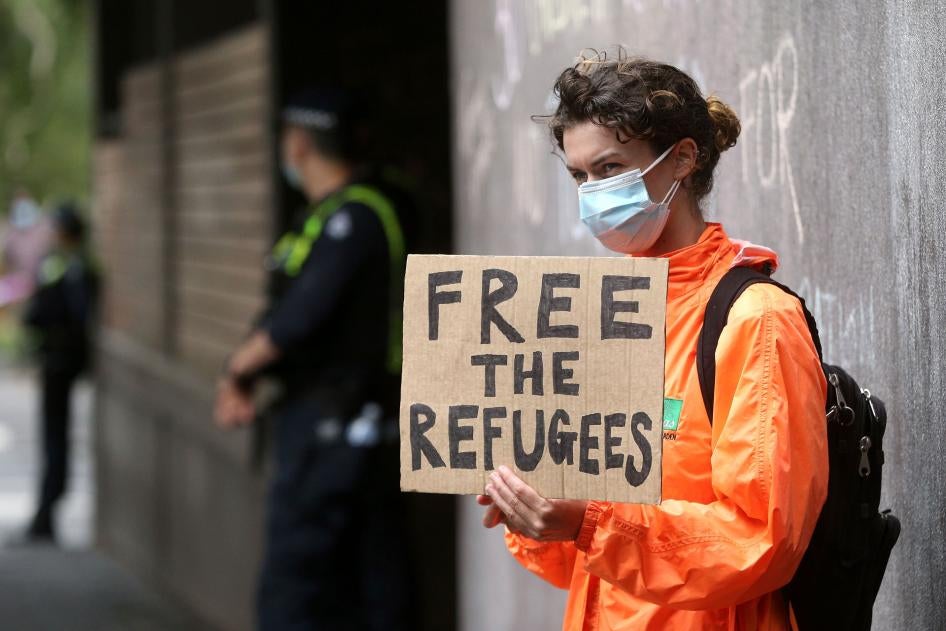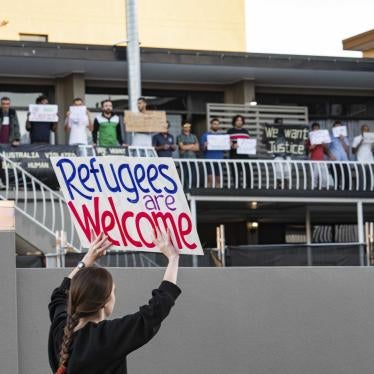While the world number one tennis player, Novak Djokovic, spent four nights detained at an immigration hotel in Melbourne before a judge ordered his release, his case became a jolting reminder of Australia’s abusive treatment of refugees and asylum seekers who have been held in the country’s immigration detention system for years.
Since July 2013 the Australian government has forcibly transferred more than 3,000 asylum seekers and refugees to offshore camps in the countries of Papua New Guinea and Nauru, where they suffered severe abuse, inhumane treatment, and medical neglect. The human toll of these cruel policies has been huge. Children in offshore camps, whom a team of pediatricians described as among the most traumatized they had ever seen, stopped speaking and wanted to end their lives.
Twelve people have died in Australia’s offshore detention system, including from murder, medical neglect, and suicide. These include Omid Masoumali, an Iranian refugee who set himself on fire during a United Nations monitoring visit in protest against his indefinite detention, and Hamid Kehazaei, another Iranian, who died after a minor infection in his leg became septic, having been denied needed medical care. In a mainland immigration detention facility in Melbourne, the 2-year-old daughter of Sri Lankan asylum seekers had to have her baby teeth surgically removed after they rotted during her time in detention.
Successive Australian governments have used detention as deterrence. Under international law, immigration detention should not be used as punishment, but rather should be an exceptional measure of last resort to carry out a legitimate aim. Adults should be detained for the shortest time necessary, while children should not be placed in immigration detention at all.
Australia’s inhumane policy seems to have encouraged other governments to follow suit. Last year, Denmark authorized the transfer of asylum seekers to offshore locations. In the United Kingdom, the House of Commons passed the “Borders Bill,” purporting to do the same, which the House of Lords is currently examining. These laws threaten to include the worst aspects of Australia’s policy.
Australian politicians have long relied on “tough on borders” rhetoric to win elections. This populist tactic has helped to ensure these abusive policies have remained in place for as long as they have. Inhumane treatment of refugees is not an acceptable nor a lawful policy of deterrence. All Australians should voice their opposition to prolonged and indefinite immigration detention, because while Djokovic may now be free, hundreds of others are not.










